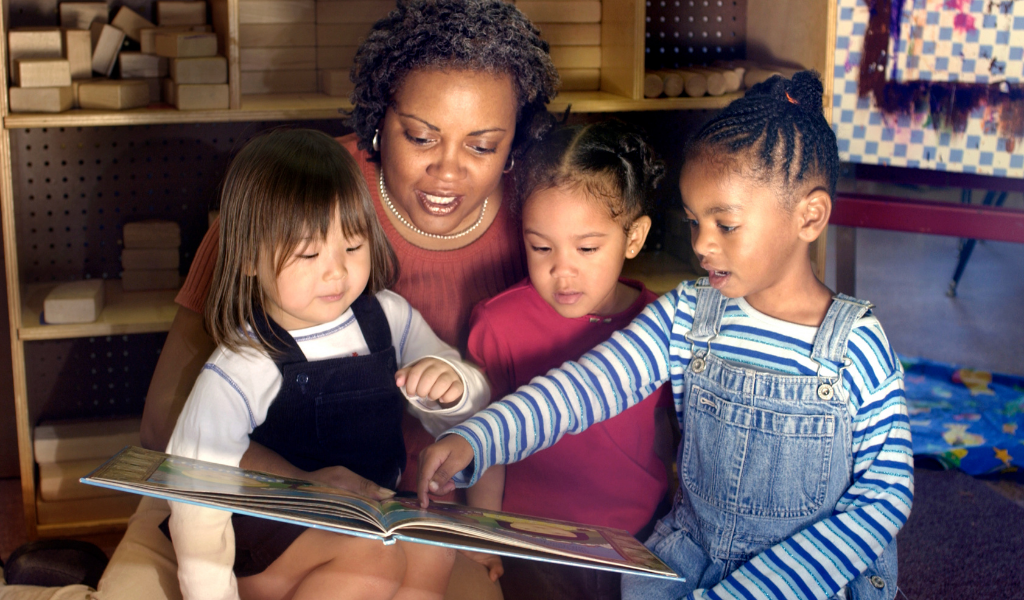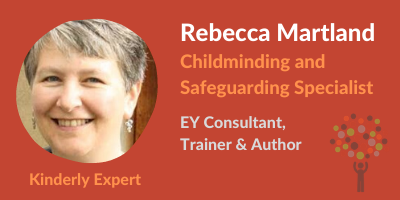Our in-house early years expert Rebecca shares with us everything you need to know about the new EYFS updates that came into force on 1st November 2024 for both group and childminder settings.
There were minor changes to the Group Setting version, including
As part of the Levelling Up and Regeneration Act 2023 provision was made for a new category of childminder ‘without domestic premises’, which has now been incorporated into the EYFS alongside new flexibilities for childminders with domestic premises (home-based childminders).
The concept of ‘childminder without domestic premises’ (CWDP) is an odd one, given that the very nature and definition of childminding is that it is home-based. Concerns have been raised with the DfE regarding the title, but they assert that it is still appropriate as these childminders will continue to offer a homely environment, within childminder ratios and requirements. They have said that the changes were brought about in response to feedback from childminders and the sector in general, including that
Another concern raised was that of potential loneliness and lack of peer support, but some childminders may not be able to work alongside other adults in their home due to lack of space. Being able to work on non-domestic premises for some or all of the time may help to alleviate this.
Both types of childminder may now work with up to three other adults (plus the childminder) at any one time, subject to the EYFS space requirements – i.e. a maximum of four adults working together, including childminders and assistants
Domestic/home-based childminders are no longer limited to working from non-domestic premises (NDP) for up to 50% of their time. has been removed. The amount of time allowed working on NDP is now unspecified as long as at least some time is spent providing childcare at the registered home premises. Childminders can choose how they operate between their premises, which might be on a daily, weekly, monthly or yearly basis, but must notify Ofsted/Childminder Agency (CMA) how they intend to divide the work across the different premises. Domestic childminders do not need to request approval for outings to non-domestic premises, such as toddler groups, where the children continue to be picked up and dropped off from their registered home premises
Inspections will take place wherever the childminder would normally be on the day/time the inspection occurs.
Childminders who are already registered do not need to take any action in relation to these changes and will continue with their current registration as domestic childminders, unless they choose to re-register as childminder without domestic premises, in which case they may continue to work from home until their new registration and premises are approved by Ofsted/CMA.

Childminders without domestic premises (CWDP) will register to work for 100% of their time on non-domestic premises and must not provide any childcare in their own homes unless they also hold registration as a domestic childminder. They must make it clear to parents that care will not be provided in the home.
It has been suggested that as well as individuals looking to register as CWDP this may also be of interest to small group settings who are struggling to recruit qualified staff as they could re-register as CWDP which does not require specific qualifications for staff, as long as they have a secure knowledge of the EYFS. They would, however, have to adhere to the childminder ratios which may not be cost effective.
In both types of registration, all of the Childminder EYFS requirements continue to apply, including ratios, space requirement, ‘2-hour rule’ for assistants and safer recruitment practices, suitability checks and Ofsted/CMA approval for any adults living and working on the premises (domestic childminders), or working on the premises (non-domestic childminders. Disqualification by association and household DBS checks will not apply to non-domestic childminders.
Any proposed non-domestic premises, (which may include places like church halls or parts of a school or community centres, or houses not used as a domestic dwelling), must be approved by Ofsted/CMA before the childminder (both types of registration) can work from there. Non-domestic premises also include outdoor spaces, as long as there is a clearly defined area that is only used by children. Ofsted/CMA must be informed if the childminder does not have sole use of proposed premises, including if they are operating alongside other childminders. Childminders may register multiple premises with Ofsted/CMA but may only operate from one at any given time.
Things to consider when using non-domestic premises:
When applying for approval to use non-domestic premises Ofsted/CMA will take the above points regarding the premises into consideration. They have advised that it will take around 9 weeks to approve a premises, which may include a site-visit.
If you are considering renting or buying non-domestic premises to childmind from, either for part of your time under your current domestic registration, or for all of your time as a childminder without domestic premises it may be worth talking to your Local Authority Early Years advisory team to see if there is any support they can offer in finding suitable premises.
Statutory Framework for the Early Years Foundation Stage https://www.gov.uk/government/publications/early-years-foundation-stage-framework–2
Register as a childminder https://www.gov.uk/become-childminder-nanny
Register as a childminder without domestic premises https://www.gov.uk/guidance/register-as-a-childminder-without-domestic-premises
Apply to work on non-domestic premises https://www.gov.uk/guidance/applying-to-work-some-of-the-time-on-non-domestic-premises-eya

Thank you to Rebecca for providing all these insights. We hope you find them useful!